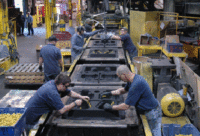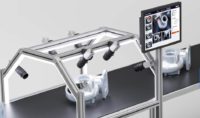MILWAUKEE—Companies in a variety of industries have been investing millions of dollars in smart manufacturing initiative. They’ve adopted state-of-the-art technology to build resilience, enable agility, increase sustainability and address workforce challenges.
However, many manufacturing are struggling with their efforts, according to the 8th annual “State of Smart Manufacturing Report” conducted by Rockwell Automation Inc.
While technology is crucial to mitigating risk and delivering growth, one-third of manufacturers claim that the range of available systems and platforms is leading to “technology paralysis” or an inability to decide between various options.
Other key global findings include the following:
*Twice as many manufacturers believe their organization lacks the technology needed to outpace the competition, as compared to 2022.
*Four out of five manufacturers still lack an end-to-end supply chain planning strategy.
*Cybersecurity risks rank highest as the obstacle respondents are looking to mitigate with smart manufacturing initiatives.
In addition, 45 percent of manufacturers cite “improving quality” as the main positive outcome they want to achieve with smart manufacturing initiatives.
A majority (89 percent) of respondents plan to maintain or grow employment due to technology adoption. And, 36 percent believe they will be able to repurpose existing workers due to their increasing use of technology.
“Manufacturers are continuing to seek opportunities for profitable growth, but are realizing that uncertainty in workforce availability is impacting quality, along with their ability to meet evolving customer needs,” says Veena Lakkundi, senior vice president of strategy and corporate development at Rockwell Automation.
“The survey found that smart manufacturing technology is enabling manufacturers of all sizes to optimize more resilient, agile and sustainable solutions that accelerate transformation,” explains Lakkundi. “If we’ve learned anything from history, it’s that organizations that invest in innovation, with a bias for action, during times of uncertainty can outpace competitors.”


